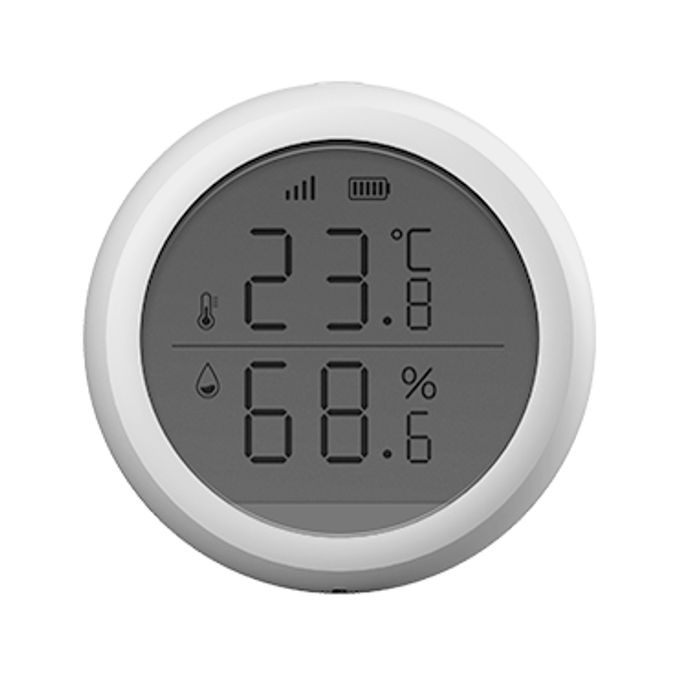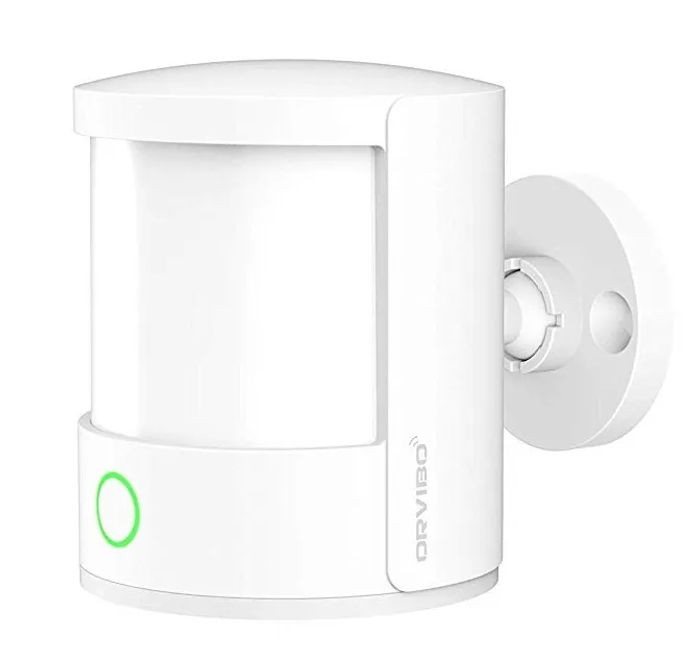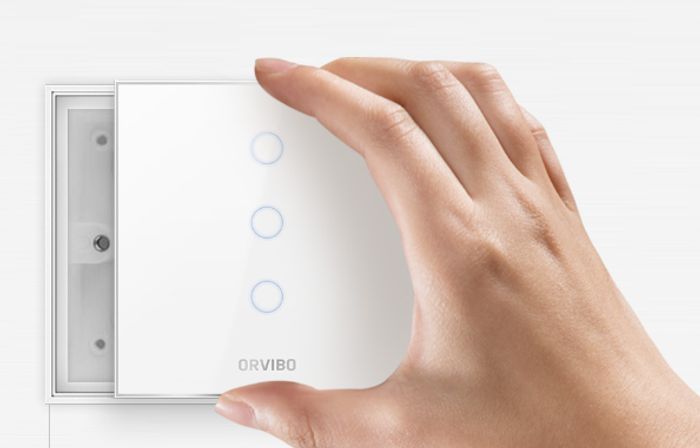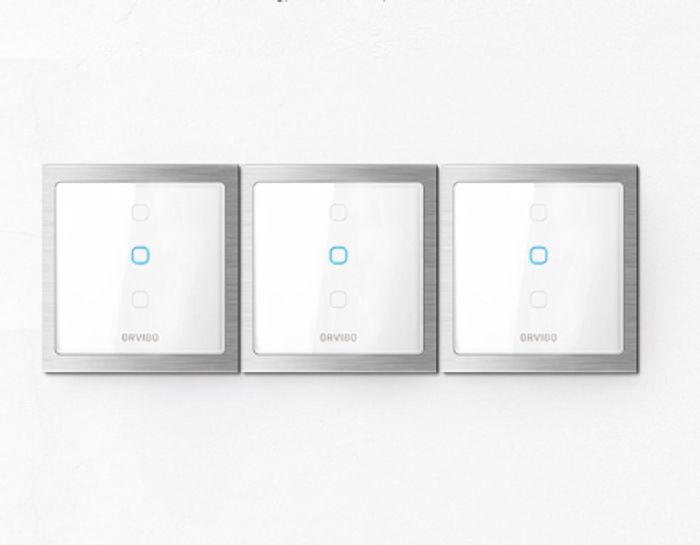Smart Hospital
The principles and trends of new technologies in making hospitals smarter
Internet of Things (IoT) technologies serving the smart hospital
Digital innovations and systems based on the Internet of Things (IoT) have affected various aspects of our lives. This impact is so great that nowadays there is hardly any area that has not benefited from the influence of modern Internet of Things (IoT) technologies. One of the fields that have witnessed significant progress under the influence of these innovations is the field of health and treatment. The use of systems known as smart tools have played an effective role in improving the process of diagnosis and treatment of various diseases.
Maybe it's time to make hospitals smarter. The presence of digital technologies in smart hospitals undoubtedly promises to enter a new era in the field of treatment and medicine.

What is meant by a smart hospital and how does it work?
In smart hospitals, data is collected and analyzed through integrated systems that are put together with the help of Internet of Things (IoT) tools. In fact, in a smart hospital, the integration of processes starts from within each department where there are different systems such as lighting, cooling and heating and ventilation.
Smart hospitals use data and modern Internet of Things (IoT) technologies to improve their processes and maximize patient well-being. It can be said that smart hospitals are inspired by the idea that patients are customers and expect medical facilities to meet their needs. Therefore, smart hospitals do their best to provide a unique experience instead of just focusing on treatment. Smart hospitals extend this style of service to patients' companions as well.
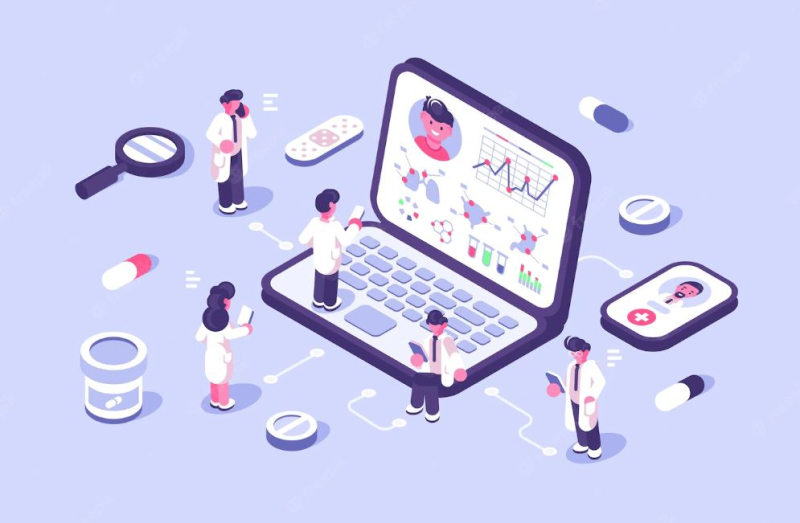
Why is it important to make smart hospitals?
In today's modern world, electronic health and smart hospital systems have become an absolutely necessary issue. This allows people to largely avoid wasting their time. In addition, it helps doctors to organize their schedules more effectively and makes it possible to avoid long queues in hospital.
Another important advantage is that the electronic health system allows patients and doctors to get all the necessary information about the health status of people whenever they need it. The implementation of Internet of Things (IoT) technologies in the hospital helps doctors and nurses to focus more on providing medical services and spend less time on tasks that can be done by intelligent systems.Other benefits of implementing hospital intelligent systems are as follows:
- Reduction of medical errors
- Reducing energy consumption
- Reducing the duration of providing services to patients
- Increasing the level of safety and security in hospitals
- Reducing the costs of providing services in hospitals
- Increasing the quality of services and upgrading the quality level of the hospital
- Optimizing the use of human resources and hospital equipment
- Increasing the useful life of equipment and reducing their maintenance costs
- Registering patients' information electronically in the hospital's data center with the aim of maintaining disease records

Is smarting the same as digitalization?
It is important to note that digitization does not make hospitals smart by default. The implementation of digital systems, such as robotic processes in healthcare, is a step towards becoming intelligent, but not the end goal in itself. Digital systems allow you to record and record data. You can then benefit from their analysis using Internet of Things (IoT) technologies.
What are the technologies used in making hospitals smarter?
In terms of technology, smart hospitals use a variety of innovative Internet of Things (IoT) technologies, the most important of which are listed below:
- Big data analysis tools
The use of these tools helps to diagnose and treat diseases, facilitates medical research and manages the health of people in the society.

- Augmented Reality (AR)
Augmented reality (IoT) is a powerful tool in pain management, mental health treatment, as well as training health and medical staff.
- IOB smart beds
Smart hospital beds, which are called Medical IOB, have the ability to record patients' vital information and are actually biometric authentication systems.
- Cloud computing platforms
In the Smartening of hospitals, large amounts of data must be collected and analyzed. Doing this in hospitals will be a big challenge. Therefore, this is where the importance of cloud computing platforms doubles.
What parts of the hospital can be made intelligent?
- Access control system
- Environmental protection system
- Central paging system
- Smart pharmacy system
- Fire alarm and extinguishing system
- Remote examination systems
- Patient notification system
- Intelligent emergency power system
- Non-attendance appointment systems
- Intelligent communication systems with nurses
- Intelligent hospital parking management
- Integration of the operating room management system
- Drug delivery system, laboratory samples
- System for locating nurses, doctors and patients
- Hospital equipment management system based on RFID technology
- Medicines management systems in the hospital based on RFID
- Intelligent control system for the ambulance fleet and helicopter landing on the roof of the hospital
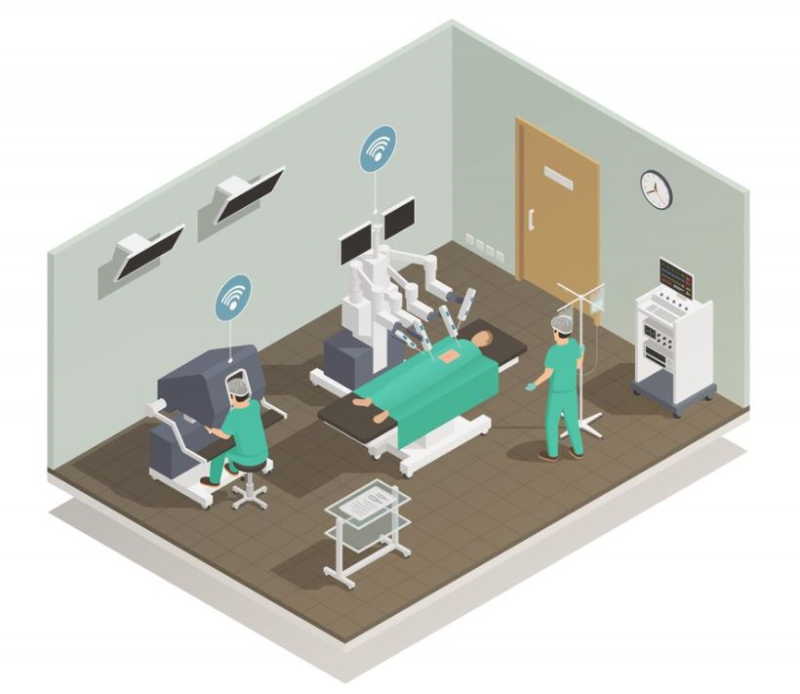
What features does a smart hospital bring?
- Monitoring of patients in smart hospitals
Smart hospitals use different Internet of Things (IoT) technologies to monitor patients both inside medical centers and in their homes. Some examples of these cases are given in this section:
- Displaying information about patients at the entrance of their room
In smart hospitals, digital boards replace nursing care cards. In these boards, in addition to displaying the name of the patient and the attending physician, it is possible to connect to the patient's electronic health record (EHR) and provide useful information such as infections, allergies, and the risk of falls. The technology can also track who enters the room.
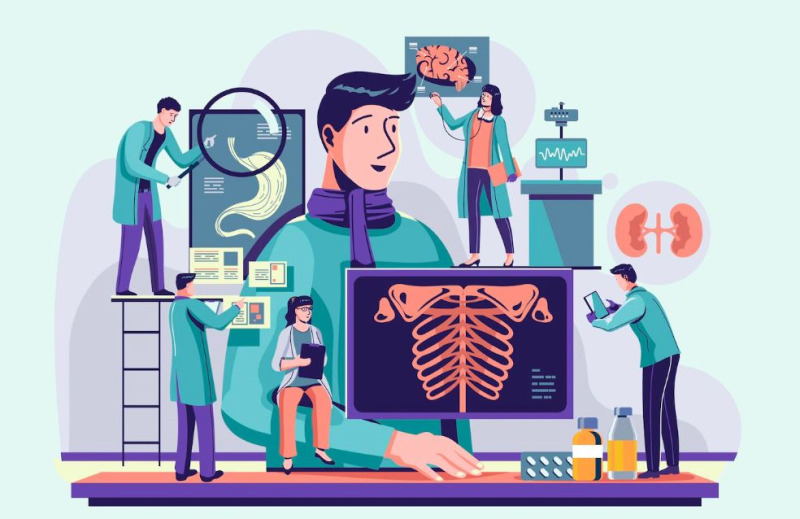
- Monitoring the vitals of patients
In smart hospitals, smart wristbands can be used to check patients' vital signs. Based on a specific algorithm, these wristbands measure the vital conditions of patients and warn the medical staff if the patient's condition worsens.
- Providing services to vulnerable groups of patients
Using avatar technology, elderly patients can be helped to better manage their chronic conditions. Doctors and nurses can interact with their patients through this avatar and help them stay in touch with them without frequent visits to the hospital.
- Locating the patients
With the help of some Internet of Things (IoT) tools, it is possible to monitor the patient from the moment of admission to discharge.
- Asset tracking in smart hospitals.
Studies show that nurses spend about 40 hours a month looking for lost equipment, and in 16% of cases, they don't find what they're looking for and give up. Smart hospitals can supply their equipment with Bluetooth-based beacons, RFID or QR tags, and in this way, the location of the equipment is displayed on smart notice boards. Such a system can even show which of the disinfection equipment are ready to use and which are being prepared.
Sensors can also be used to locate medical personnel and even ensure compliance with hospital hygiene protocols.

- Management of facilities in smart hospitals
Smart hospitals use collected data analysis to detect early signs of possible failures in hospital equipment. Some Internet of Things (IoT) devices can detect early signs of oxygen depletion in intensive care units and transmit this information to the nursing station. As a result, emergency doctors can immediately intervene and carry out the necessary measures.
- Optimizing workflow and processes in smart hospitals
A hospital is a complex system that includes people, equipment, infrastructure and many processes. Managing everything manually is tedious and almost impossible. Smart hospitals use Internet of Things (IoT) innovations to streamline underlying processes and provide an overview of workflows.
- Internet of Things (IoT) technologies in disease diagnosis
Smart hospitals have programs that help doctors diagnose diseases faster and with higher accuracy.
- Pathological analysis based on 5G
By using this method, the process of diagnosing the disease will be done much faster. Traditionally, the tissue obtained in the sampling procedure is sent to a pathologist, and the pathological diagnosis may take up to a month. But by using this technology, this time can be reduced to 20 minutes.
- Artificial intelligence and cancer diagnosis
Artificial intelligence is used in genomics to diagnose and classify cancer through blood tests. In this method, to identify the disease, cell-free biomarkers and circulating proteins are measured and its type and stage are identified.
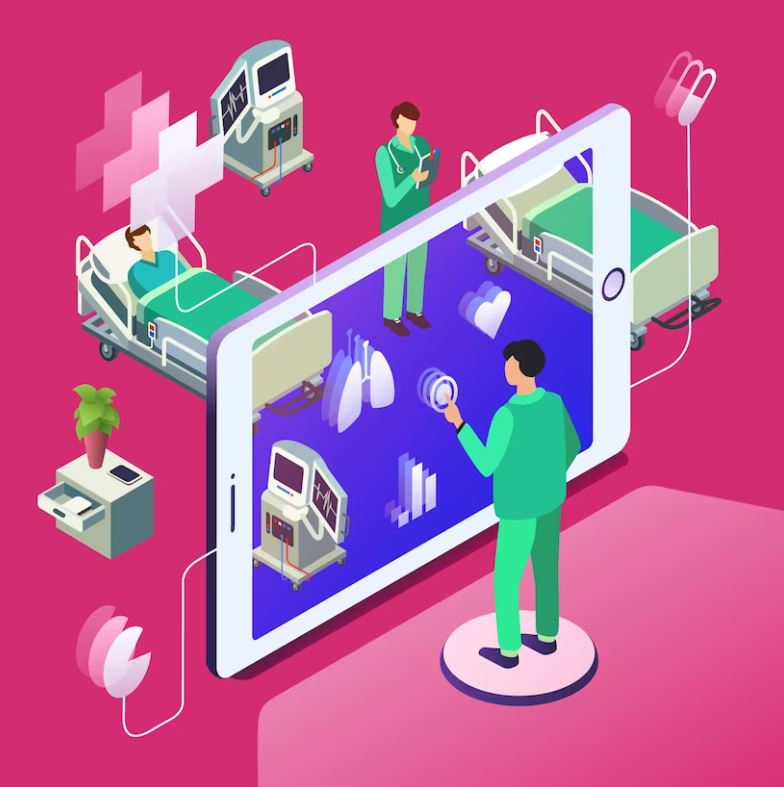
Information system and guide for clients in smart hospitals
Smart hospitals use different methods to guide patients and their companions. If the clients cannot find their desired place inside the hospital, they get confused or enter the doctor's room or the relevant department with a feeling of stress. An intelligent information system and client guide helps patients and their companions to find the places they want, such as parking, clinic, special departments, etc., easily and quickly.
Smartening the hospital with IoTSmile platform
IoTSmile's integrated operation platform is the best option for making a hospital smart by providing smart solutions. Among the most important advantages of using this platform are:
- Significant reduction in energy consumption costs
- Integration of the operating room management system
- Speeding up the process of providing medical services
- Optimizing the use of hospital equipment
- Management of consumption and transfer of drugs in the hospital
- Reducing medical errors and speeding up the disease diagnosis process
- Allocation of hospital staff time to perform important tasks
- Systematic collection and archiving of patients' information and their records
- Reducing traffic in the hospital corridors or waiting in line for an appointment
- Ensuring the safety and security of the hospital by updating the intelligent monitoring system
- Reducing the transmission of diseases through the use of personal equipment such as personal tablets
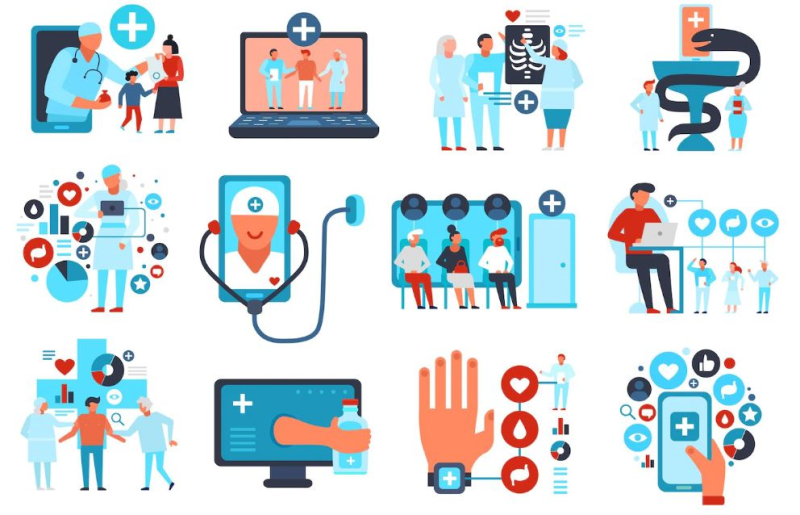
In the end, we hope that we have provided you with the right information by introducing and examining the advantages of hospital automation.
To receive advice and prepare any of the products, you can contact us by calling the numbers announced on the site, sending an email or registering a ticket. Our colleagues are ready to answer and guide you.
References:
- Stanleyhealthcare: Solutions for Hospitals & Clinics
- Itrexgroup: Smart hospitals: market overview, trends, and considerations-January 11, 2022
- Intel: What Is a Smart Hospital
- Caverion: Smart Hospitals
foundNothing


